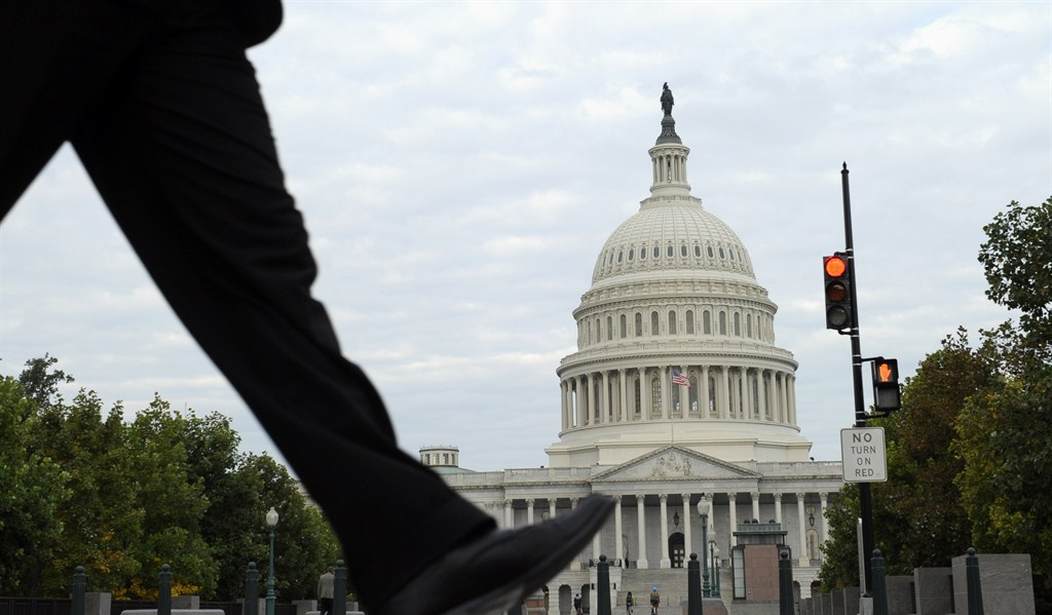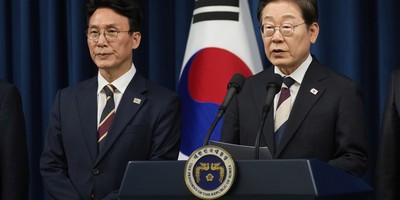Yes, it is frustrating. The government should run smoothly and efficiently, going about its business and getting things done without much pomp and circumstance. Having the government shut down, well, it's inconvenient for many of us -- no museums, zoos or national parks. For others, who either work in nonessential government jobs (and who are not working and not getting paid) it's more than an inconvenience.
Just imagine if you were suddenly told that you should not go to work and you would not get paid. Then there are those who do not work directly for the government, but provide services. The hospitality sector in Washington is certainly going to take a hit as fundraisers are cancelled during the shutdown.
Shouldn't they just get together and make things work? Well, yes, but this frustration, this friction is what makes our system different -- more difficult but, in the end, more responsive to the people.
Our government was constructed so that its three branches would have to work together: executive (president), legislative (Congress), and judicial (Supreme Court). For most day-to-day operating activities, the Congress initiates bills (either the House or the Senate), and if both houses pass the bills, the president either signs the bill into law or vetoes it. Of the two major parties, the Democrats currently hold the power in the Senate and the presidency. The Republicans currently hold the power in the House of Representatives.
This is termed a divided government.
The U.S. Constitution states, "All Bills for raising Revenue shall originate in the House of Representatives; but the Senate may propose or concur with Amendments as on other Bills." In a working system, the House would pass its version of the budget and the Senate would pass its version. Then there would be reconciliation between the two versions in conference. The final bill would make its way to the desk of the president.
Recommended
On Tuesday of this week, Speaker John Boehner offered to open a conference with the Senate regarding the budget. Senate Majority Leader Harry Reid and the Democratic Senate voted against opening negotiations. Reid has offered the House the option of voting on the Senate bill, even though the power of appropriations lies with the House.
"Every Bill which shall have passed the House of Representatives and the Senate, shall, before it become a Law, be presented to the President of the United States: If he approve he shall sign it, but if not he shall return it, with his Objections to that House in which it shall have originated, who shall enter the Objections at large on their Journal, and proceed to reconsider it," continues the Constitution, "If after such Reconsideration two thirds of that House shall agree to pass the Bill, it shall be sent, together with the Objections, to the other House, by which it shall likewise be reconsidered, and if approved by two thirds of that House, it shall become a Law.
"The Congress shall have Power To lay and collect Taxes, Duties, Imposts and Excises, to pay the Debts ... To borrow Money on the credit of the United States," notes the Constitution.
The power in this battle resides in Congress, specifically in the House of Representatives, as the originator of all appropriation bills. The people elect the House of Representatives every two years -- therefore the power resides with the people. While the president and the Senate majority leader might hold the power of the media and messaging, as well as the bully pulpit -- the House has the constitutional power to start appropriations.
Is it frustrating to watch our government fail to work efficiently and effectively? Well, yes, but it is much better than the alternative. Efficiency and rapid action can be achieved by having a single point of control, a king or dictator who makes a decision and forces those around him (or her) to carry out the decision. However, it is exactly this structure -- a king -- which our founding fathers guarded against. They knew that the power must be divided, and they deliberately created a government with three branches that included checks and balances within the system itself.
Dysfunctional -- yes, on occasion -- but better than the alternative.

























Join the conversation as a VIP Member